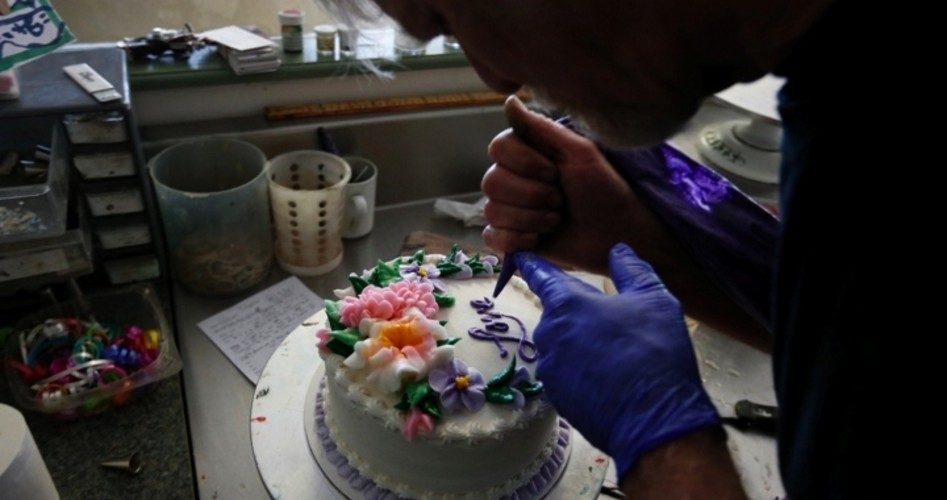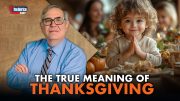
The Colorado Court of Appeals has handed the concept of religious liberty for individuals yet another defeat, with its August 13 ruling against suburban Denver baker Jack Phillips (shown). The appellate court upheld a lower court ruling that the owner of Masterpiece Cakeshop had illegally discriminated against two homosexual men by refusing to bake a cake to celebrate their “marriage.”
The two men, Charlie Craig and David Mullins, had filed a complaint with the aid of the American Civil Liberties Union (ACLU), citing Colorado’s anti-discrimination law. Phillips told them that to accede to their wishes would violate his religious beliefs.
When the two men ordered the cake in 2012, Colorado did not recognize same-sex marriage; however, the court held that the refusal by Phillips to bake the cake ran afoul of the state’s law which prohibits discrimination based upon “sexual orientation.”
In a 66-page ruling, the appellate court dismissed the argument by Phillips that being required to bake a cake to celebrate a same-sex wedding violated his right to freedom of religion and free speech, contending that a requirement for someone to follow the anti-discrimination law is not forcing him to “endorse” the marriage of the two men.
The court opined, “Masterpiece remains free to continue espousing its religious beliefs, including its opposition to same-sex marriage.”
Phillips’ attorneys decried the ruling. “Jack simply exercised the long-cherished American freedom to decline to use his artistic talents to promote a message with which he disagrees,” declared Jeremy Tedesco of the Alliance Defending Freedom, a group based in Arizona.“The court is wrong to deny Jack his fundamental freedoms.”
But the court denied it was violating Jack’s freedoms of religion and speech, insisting it was merely prohibiting his business “from discriminating against potential customers on account of their sexual orientation.”
Of course, constitutionalists recognize that the First Amendment to the Constitution does not simply protect an individual’s right to “espouse” religious beliefs, but rather also to practice, or have the “free exercise” of his religious beliefs. The appellate court failed to explain exactly how Phillips would be able to “exercise” his religious beliefs, in addition to espousing them, under this ruling.
The Colorado decision is just the latest in a string of similar cases around the country in which courts are trying to force Christians to set aside the free exercise of their religion so as not to discriminate based on sexual orientation.
In Washington State, for example, a florist who refused to provide services for a same-sex marriage in 2013 is now facing litigation. A New Mexico Supreme Court ruled two years ago that a photographer who refused to work a same-sex couple’s “commitment ceremony” was in violation of that state’s anti-discrimination law. Recently, two bakers in Oregon were even slapped with a $135,000 “damages” assessment because they declined to make a wedding cake for a same-sex couple.
In all these cases, the business owners were not refusing to conduct business with same-sex couples, simply because they were same-sex couples. All have expressed that they had no problem baking cakes (such as birthday cakes, etc.), providing flowers, or taking photographs for these individuals, who happened to be gay. They simply did not want to participate in celebrating a same-sex wedding, an activity which they consider morally wrong.
Some have wondered — if these “anti-discrimination” laws were carried far enough — would a Jewish sign maker, for instance, some day be required to make signs celebrating the Holocaust? Or would an African-American baker be forced to make a cake for the Ku Klux Klan?
The fact is, everyone “discriminates” every single day — over which restaurant or store they wiill patronize (and thereby, which ones they will not give their custom to), what car they will buy (or not buy), who their friends will be, and what functions they will (or will not) attend. Lawyers routinely decline business from prospective clients whose causes they disagree with. All of this is certainly discrimination, but there’s nothing wrong or illegal about it. It’s a natural part of life.
Presently, 29 states do not prohibit discrimination based on “sexual orientation.” Such cases as those of the Colorado baker and the Washington State florist would not happen in those states.
Or would they?
How much longer will it be before federal judges require all states to outlaw discrimination on sexual orientation? After all, marriage laws were held as an example of federalism — something which was within the jurisdiction of each state — until the Supreme Court “discovered” a “right” to same-sex marriage in the 14th Amendment of the Constitution.
With federal courts tending to disregard the clear wording and intent of the Constitution, what can be predicted for the future, based on these cases with florists, bakers, and photographers? If these individuals are not allowed to freely exercise their religious beliefs, and decline to take actions which violate their consciences, what is next?
The ramifications are many.
What about Christian colleges that offer “married student housing”? After all, under the reasoning of the appellate court in Colorado (which might very well be adopted by federal courts as well), these colleges would be allowed to continue to “espouse” their view that homosexual activity is wrong, but they just will not be allowed to practice such a “discriminatory” belief.
Will churches be required to hire overt homosexuals? Will they be forced to rent out their facilities for the performance of same-sex marriages, if their buildings are used for heterosexual weddings?
As it stands now, ministers often decide after counseling a heterosexual couple to decline to perform their wedding. Such refusal, is, of course, “discrimination.”
What the courts will decide when (not if) such cases arise is speculation. But based on the past rulings of federal courts, including the U.S. Supreme Court, constitutionalists cannot feel confident that their right to “free exercise of religion” will be respected, regardless of the clear wording of the Constitution.
Photo of Masterpiece Cakeshop owner Jack Phillips at work in his bakery: AP Images



